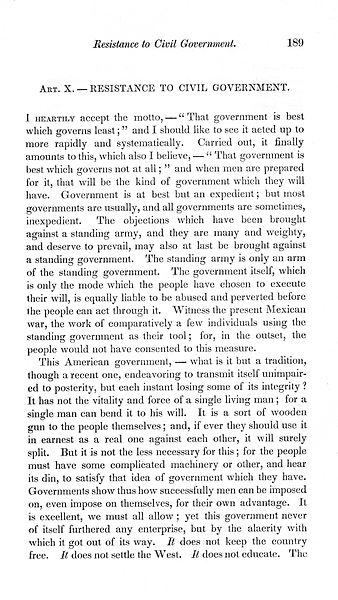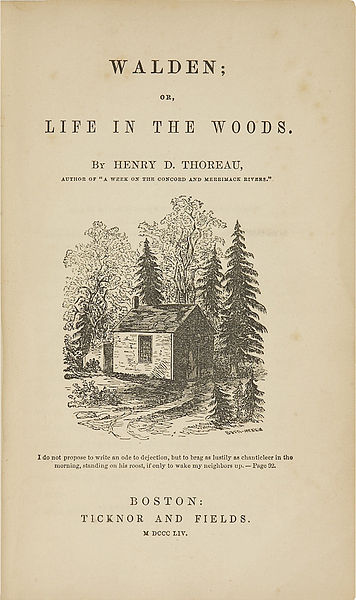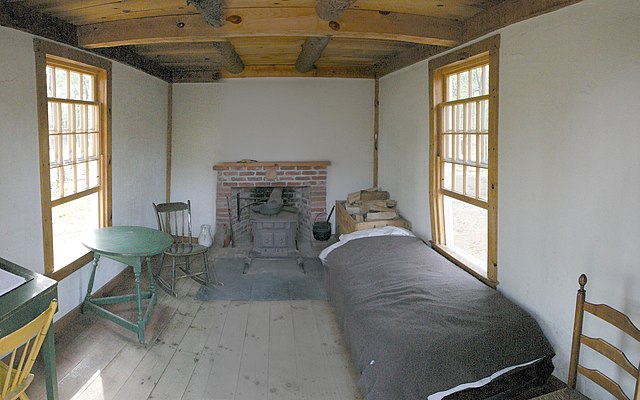Civil Disobedience (Thoreau)
Resistance to Civil Government, also called On the Duty of Civil Disobedience or Civil Disobedience for short, is an essay by American transcendentalist Henry David Thoreau that was first published in 1849. In it, Thoreau argues that individuals should not permit governments to overrule or atrophy their consciences, and that they have a duty to avoid allowing such acquiescence to enable the government to make them the agents of injustice. Thoreau was motivated in part by his repulsion of slavery and the Mexican–American War (1846–1848).
First page of "Resistance to Civil Government" as published in Aesthetic Papers, in 1849.
Lock and key from Thoreau's Concord jail cell
Henry David Thoreau was an American naturalist, essayist, poet, and philosopher. A leading transcendentalist, he is best known for his book Walden, a reflection upon simple living in natural surroundings, and his essay "Civil Disobedience", an argument in favor of citizen disobedience against an unjust state.
Thoreau in 1856
Thoreau's birthplace, the Wheeler-Minot Farmhouse in Concord, Massachusetts
Original title page of Walden, with an illustration from a drawing by Thoreau's sister Sophia
Reconstruction of the interior of Thoreau's cabin






